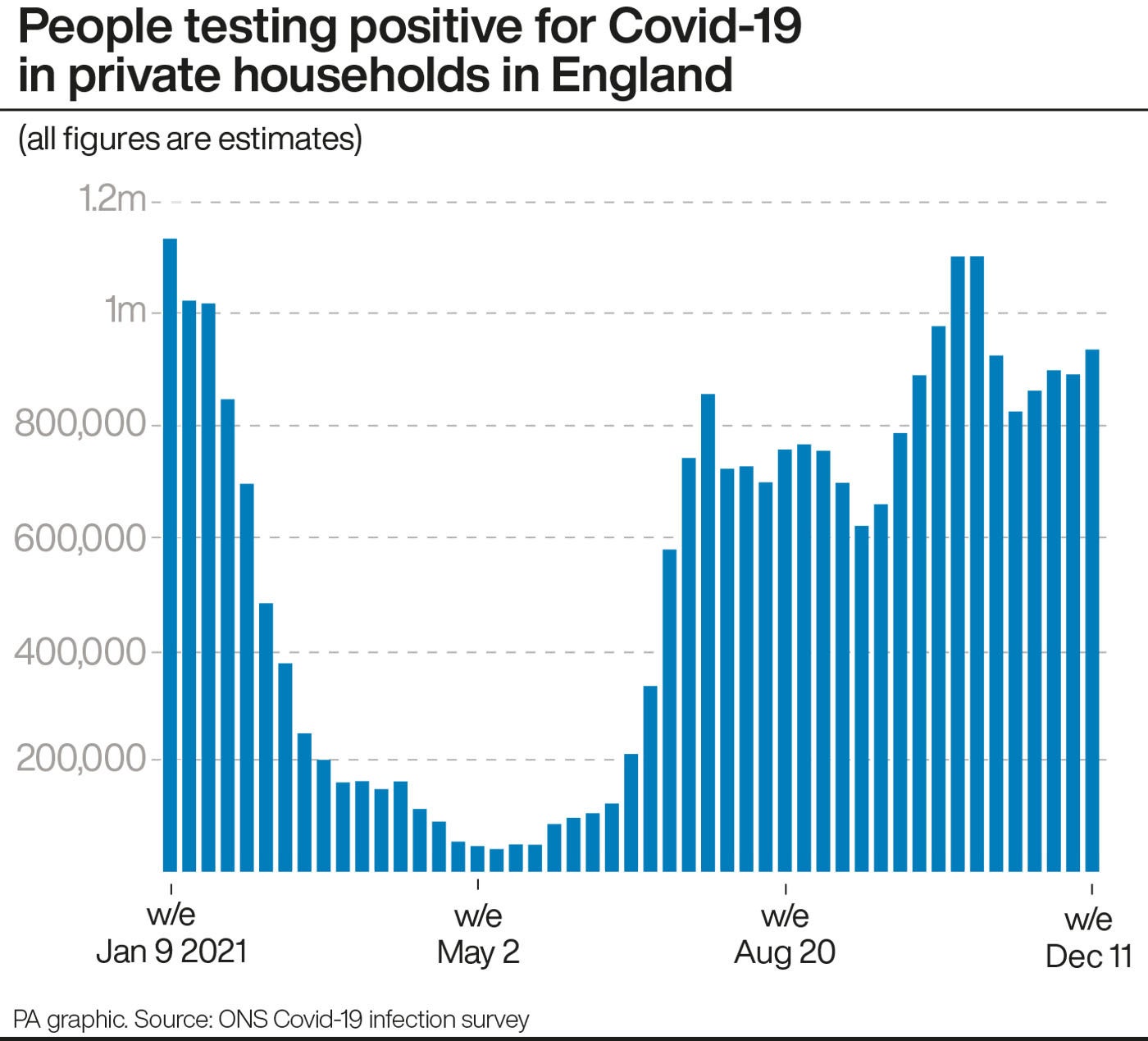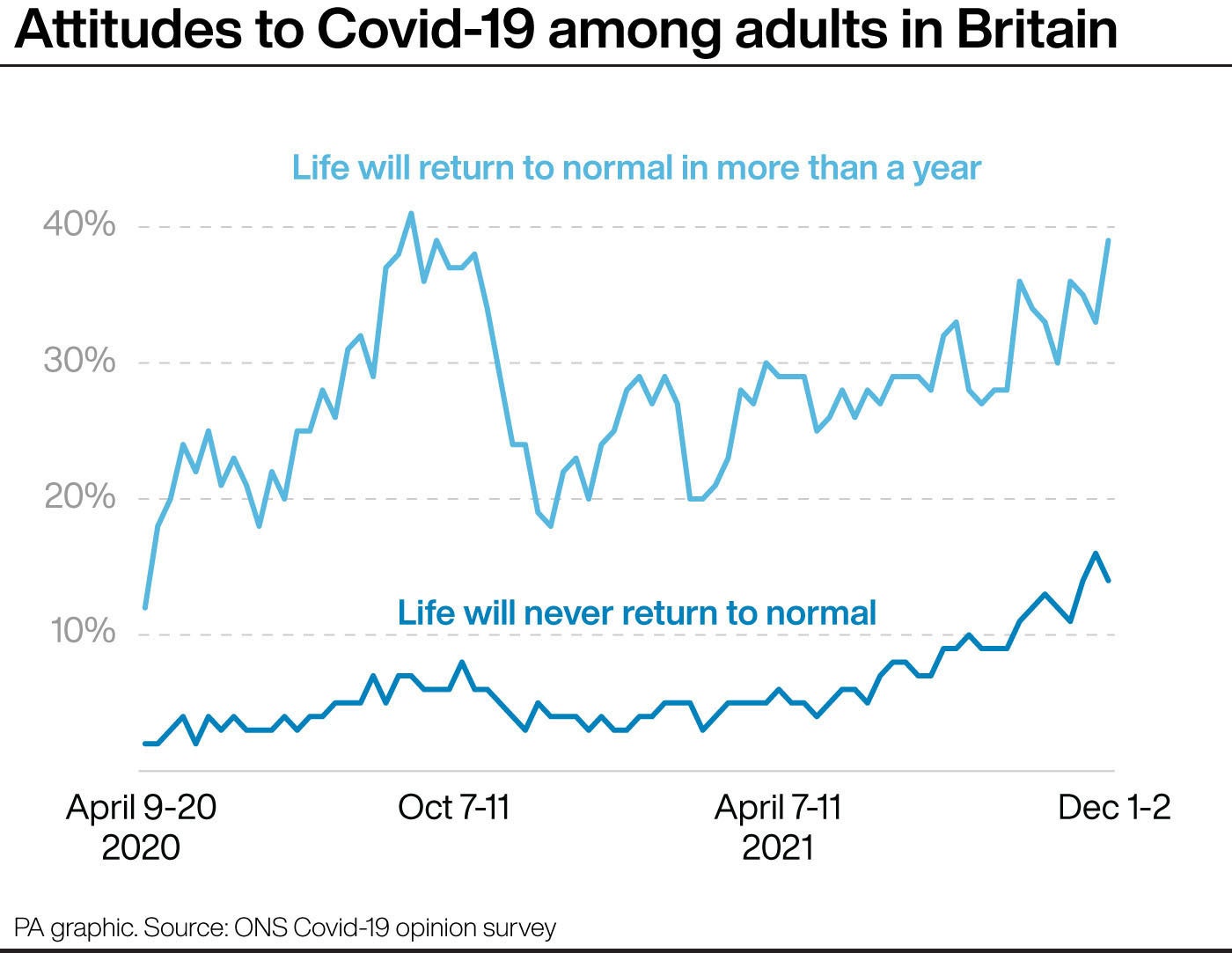Omicron ‘largely evades immunity from past infection or two vaccine doses’
The study also found no evidence of Omicron having lower severity than Delta.
Your support helps us to tell the story
From reproductive rights to climate change to Big Tech, The Independent is on the ground when the story is developing. Whether it's investigating the financials of Elon Musk's pro-Trump PAC or producing our latest documentary, 'The A Word', which shines a light on the American women fighting for reproductive rights, we know how important it is to parse out the facts from the messaging.
At such a critical moment in US history, we need reporters on the ground. Your donation allows us to keep sending journalists to speak to both sides of the story.
The Independent is trusted by Americans across the entire political spectrum. And unlike many other quality news outlets, we choose not to lock Americans out of our reporting and analysis with paywalls. We believe quality journalism should be available to everyone, paid for by those who can afford it.
Your support makes all the difference.Omicron largely evades immunity from past coronavirus infection or two vaccine doses, and boosters are key to mitigating the impact of the variant, new research suggests.
The risk of reinfection with Omicron is 5.4 times greater than that of the Delta variant, according to researchers at Imperial College London
This suggests the protection against reinfection by Omicron from past infection may be as low as 19%.
The study also found no evidence of Omicron having lower severity than Delta, but data on hospital admission was very low at the time of the study.
According to the data, boosters are vital in controlling Omicron, but they may lose some effectiveness over time.
Researchers estimated the proportion of Omicron among all Covid cases between November 29 and December 11 was doubling every two days up to December 11.
Based on this they also estimate the reproduction number (R) of Omicron was above 3, over the period studied.

Professor Neil Ferguson from Imperial College London said: “This study provides further evidence of the very substantial extent to which Omicron can evade prior immunity, given by both infection or vaccination.
“This level of immune evasion means that Omicron poses a major, imminent threat to public health.”
There is significantly increased risk of developing a symptomatic Omicron case compared with Delta for those who were two or more weeks past their second vaccine dose, and two or more weeks past their booster dose (for AstraZeneca and Pfizer vaccines), the report found.
Depending on vaccine effectiveness estimates against symptomatic infection from the Delta variant, this translates into vaccine effectiveness estimates against symptomatic Omicron infection of between 0% and 20% after two doses, and between 55% and 80% after a booster dose.
The scientists used data from the UK Health Security Agency (UKHSA) and NHS for all PCR-confirmed Covid cases in England who had taken a test between November 29 and December 11 this year.
Professor Azra Ghani, from Imperial College London, said: “Given the rapid spread of the Omicron variant to date, it is now highly likely that this will replace the circulating Delta variant globally in the coming weeks.

“Emerging immunogenicity data clearly point to substantial reductions in neutralising antibodies, whilst preliminary vaccine efficacy estimates demonstrate a substantial reduction in protection from mild disease.
“Our estimates suggest that this is likely to translate into small but important reductions in efficacy against severe disease and death.
“One remaining uncertainty is how severe the disease caused by the Omicron variant is compared to disease caused by previous variants.
“Whilst it may take several weeks to fully understand this, governments will need to put in place plans now to mitigate any potential impact.
“Our results demonstrate the importance of delivering booster doses as part of the wider public health response.
“Prioritising these boosters to high-risk populations over primary vaccination in younger age groups should be part of this response in countries where dose supply is limited.”
A separate report by Imperial researchers looked at the effectiveness of booster doses against Omicron.
After two initial doses and a booster vaccine with an mRNA vaccine, Pfizer BioNTech or Moderna, neutralising antibodies (which prevent infection) were estimated to increase 1.6-fold compared with levels following dose two of the Pfizer-BioNTech vaccine, and 3.3-fold compared with their levels following dose two of the Oxford-AstraZeneca vaccine.
However, the researchers estimate the levels of antibodies produced against Omicron could be 4.5-fold lower than those produced against the Delta variant.
They also found that this reduction in neutralising antibodies could affect vaccine efficacy against severe disease.
In a worst-case scenario, where the antibody decay rate after a booster dose is the same as that observed after the first two doses, the researchers predict that vaccine efficacy against severe disease may drop from 96.5% against Delta to 80.1% against Omicron, by 60 days after the primary vaccine course followed by a booster of the Pfizer jab.
If the rate of decay is half that rate, the drop is estimated to be from 97.6% against Delta to 85.9% against Omicron.
However, the researchers say that while these numbers are currently associated with a high degree of uncertainty, they indicate that Omicron-variant specific vaccines and/or further boosters are likely to be needed to restore protection.
According to the report, the distribution of Omicron by age, region and ethnicity currently differs from Delta, with 18–29-year-olds, residents in the London region, and those of African ethnicity having significantly higher rates of infection with Omicron relative to Delta.
